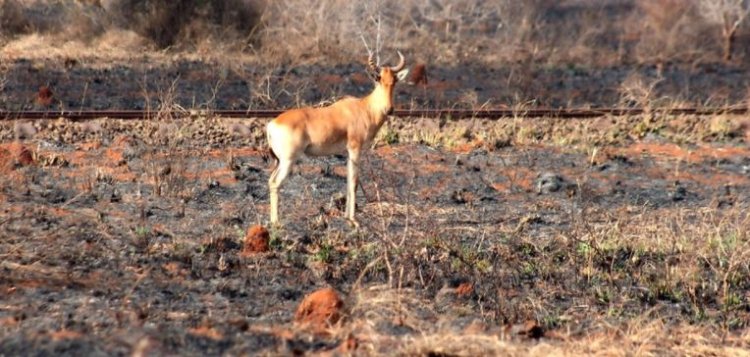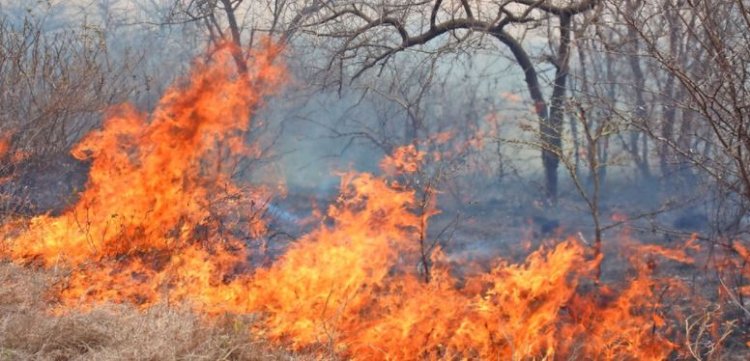Tsavo Conversation Area Ranches And WWF In Partnership To Prevent Wildfires
The World Wide Fund for Nature (WWF) has come to the rescue of the Tsavo Conversation Area ranches by partnering to prevent the heightening cases of fire.
WWF has donated firefighting equipment along with a tractor and a grader to the Mgeno conservancy, Mwatate, to help curb the firebreaks and motorbikes for patrols.
The Tsavo Conservation Area consists of Tsavo East National Park, Tsavo West National Park, Chyulu Hills National Park, South Kitui National Park, and many ranches adjacent to private and communal lands. It carries the world’s largest animal reserve in Kenya and the whole world, the Tsavo National Park.
The Conservation Area resting on 43 000 square kilometers of land is home to more than 12 000 elephants per the 2017 census. It is also home to various animals right from the gorgeously striped zebras, lions, cheetahs, wild dogs, giraffes, and buffaloes, among other wild animals.
The conservation area constantly faces arsonists, land grabbers, cattle herders, and poachers killing animals for game meat, skin, bones, and tusks.
The ranches in Tsavo have been going up in flames frequently over the last year, creating huge losses for the country, investors, and the conserved wildlife. They relied on community volunteers, Kenya Wildlife Service (KWS), and the Kenya Defense Forces (KDF) to help them extinguish the wildfires.
During the firefighting equipment handing over, Dr. Martin Mulama, the WWF southern Kenya landscape manager, mentioned that fires were a massive threat in the conservation area and called upon local communities to prevent fires.
"Wildfires are one of the biggest threats within the Tsavo ecosystem. To mitigate this, we must ensure that there are firebreaks to prevent fires spreading," he said.
The Conversation Area’s coordinator, Alfred Mwanake, said they are investing more in fire prevention measures and working on more wildfire reduction strategies involving other stakeholders.
"We are investing more in prevention measures by partnering with stakeholders like WWF to help in essential investments in prevention, preparedness, and recovery," the coordinator stated.
They also set up several water reservoirs in the nearby Kasigau, Lumo, Bura, Mbulia, and Mgeno areas for wildlife and livestock.
Among other items donated by the WWF non-governmental organizations are uniforms for the rangers, training, beehives for the nature-based enterprises, and motorbikes to enable rangers to patrol the area to increase security and uniforms frequently.




























